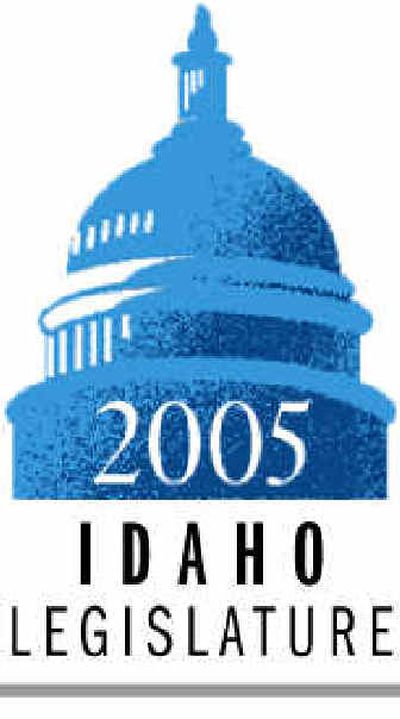Legislators kill property-tax bills

BOISE – Eight property tax relief bills were officially killed by a House committee Tuesday in favor of a summer study committee to look into the issue.
“I didn’t want to do something quick and dirty,” said Rep. Jim Clark, R-Hayden Lake. “The majority of those tax bills are just shifts – we’re going to shift it from one class of people to another class of people.”
Both Clark and Rep. George Sayler, D-Coeur d’Alene, voted in favor of the interim legislative committee, but Sayler, who sponsored one of the relief bills, said he was conflicted.
“There were a couple of those bills that we could’ve actually acted on and it would’ve been simple to do, and provided some relief,” Sayler said. On the other hand, he said, he favors “a comprehensive look to do something really worthwhile.”
North Idaho taxpayers who were counting on property tax relief this year have been organizing. A Sandpoint meeting last week at the Panida Theater drew nearly 200 people to discuss a possible voter initiative. On Thursday, a rally for property tax reform is planned on the steps of the Kootenai County Courthouse.
“This is to make a showing that Kootenai County wants property tax reform,” local real estate agent Sharon Culbreth said in an e-mail announcing the rally.
Sayler said he’s somewhat reluctant to wait for a study committee when folks in his hometown are marching on the courthouse over the issue.
Interim legislative committees typically include lawmakers from both houses and both parties. They meet and hold hearings over the spring, summer and fall, and often have proposed major legislation that’s gone on to become law. However, there also have been study committees that led nowhere – including one just a few years ago that looked at sales tax exemptions.
“My constituents feel that we need to get something this session,” House Minority Leader Wendy Jaquet, D-Ketchum, protested as the committee killed the bills, one after another.
But Rep. Dolores Crow, R-Nampa, the committee chairwoman, said, “I can see no better way to do it in a focused manner and not a piecemeal manner than to do it in this committee that will deal only with that one subject.”
The various bills were aimed at easing the burden for homeowners whose taxable values have skyrocketed because neighboring homes sold for much higher prices. Some of the bills raised the homeowner’s exemption. Others sought to defer a portion of increased taxes until the owners die or move. Still others would have provided relief for low-income people. In addition to Sayler, Reps. George Eskridge, R-Dover, and Frank Henderson, R-Post Falls, were among those proposing the bills.
But Crow warned that any time the Legislature gives property tax relief to one group, others pay more to make up the difference. “We’ve had these bills in here for years,” she said. “It’s such a complicated matter. It’s easy to pass a bill – the hard part is to plug the hole that’s created.”
However, the same committee earlier passed legislation to grant property tax relief to Micron Technology Corp., the giant Boise-based computer chip manufacturer, and that bill passed the House on Tuesday with no debate and just three dissenting votes. The measure, proposed by Micron, would cap property taxes for any single taxpayer whose taxable value hits $800 million or more. Proponents said it likely wouldn’t cost anything because it would be so rare for a company to have property that valuable.
Crow was the bill’s House sponsor. “We need these large companies,” she told the House. “We certainly need Micron to stay here, but we also need the other large companies that might qualify under this bill.”
House Speaker Bruce Newcomb, R-Burley, said both the House and Senate leadership favor convening an interim study committee on homeowner property tax relief, rather than trying to address the issue during the legislative session that is now approaching its end.
“It’s too complex,” Newcomb said. “It’s hard to do without having a tax shift to somebody else.” An interim committee, he said, is “the only way I think you can come up with a solution.”